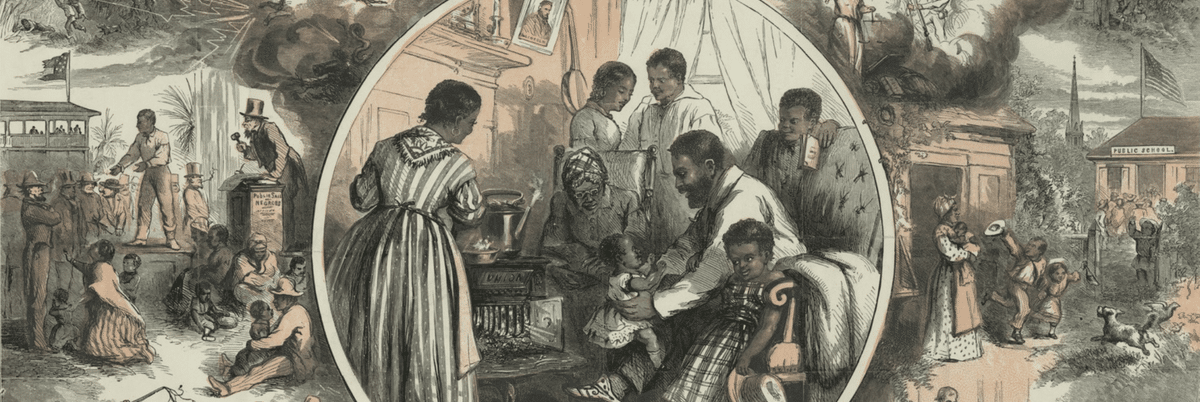In addition to being the year of the pandemic, 2020 was also the year affected by the violent racial protests that erupted in the United States and later spread around the world generated by George Floyd's death. These protests subsequently degenerated into violent attacks that resulted in two different categories of damage, one having an economic character and quantified at about two billion dollars and the other of a cultural nature. It is particularly on the latter, which is difficult to quantify but has far worse consequences, that this article will focus.
Indeed, one of the most iconic acts of such protests have been the removals of monuments named after past historical figures accused by the Left of being somehow deserving of popular insult and historical oblivion. Particularly striking have been the attacks perpetrated against the statues of former Presidents George Washington and Thomas Jefferson. The two men, one the first President of the United States and commander of the Continental Army during the Revolutionary War, the other the principal author of the Declaration of Independence, both instrumental in the creation of the nation that gave blood and birth to the protesters, were judged to be deserving of condemnation as slave owners, ignoring all the limitations of a three-century-old society and attempting to analyze the latter on the basis of modern principles.
The most extreme case, however, is the attacks perpetrated against President Lincoln's statue in Portland, Oregon. In this case the president who saved the Union, abolished slavery and adopted some of the most important institutional reforms in U.S. history was deemed worthy of insult because of his signature to the execution of thirty-nine Sioux prisoners at the end of a conflict that had seen the latter cause massive damage to the state's civilian population. Forgetting, however, that the U.S. military tribunals had sentenced 303 Sioux to death without adequately ascertaining whether they were involved in war crimes, and it was President Lincoln himself (against the advice of the people of Oregon) who commuted as many as 264 sentences because many of those convicted had not been guilty of war crimes. When Senator Ramsay informed the President that if he had all the convicts hanged he would have a better election result in the state, Lincoln responded: "I could not afford to hang men for votes.".
Conservatives have always considered historical memory as a bank from which to draw immense reserves of knowledge; however, a certain Left aims to close this bank forever through the condemnation to oblivion of any figure considered not in line with its vision, thus preventing us from learning from history and understanding the dynamics of the processes that led to the creation of the world as we know it today. The paradoxical symptom of this sick obsession turns out to be the Left's hostility to ideas and trends that have brought about social achievements in line with the Left's own intentions. Such is the case with Christian morality, now discredited by those who disguise their subversive actions as a struggle against a nonexistent modern slavery but actually the driving force behind the abolitionist movement that led the victorious struggle against this practice.
In fact, the first two documents in the history of the abolitionist movement were not drafted by ante litteram BLM protesters, but by the Germantown Quaker community and by Puritan Samuel Seewall, respectively.
The first was drafted in 1688 by German lawyer Francis Daniel Pastorious and three other men and was based on the so-called biblical Golden Rule. That rule is described in the Gospel according to Matthew, specifically in verse number twelve of chapter seven: "Whatever you want men to do to you, you also do to them: this is the law of the prophets.". This concept is expressed in a different form in the Book of Tobiah (4:15): "Don't do to anyone what you don't like.".
The Golden Rule represents an essential construct for maintaining peaceful relations within a social group. It is mentioned in the petition through the phrase: “There is a saying, that we shall doe to all men like as we will be done ourselves; making no difference of what generation, descent or colour they are”. The authors extend the application of the latter to all human beings regardless of denomination or ethnicity and pose as an example the slavery policy adopted by the Ottoman Turks in Europe. Specifically, they describe how Christians were extremely fearful of Turkish raids and considered being separated from families and sold as slaves as the supreme of misfortunes, so adopting such a practice towards Africans represented a profound contradiction with Christian morality itself.
Second, they mentioned the possibility of a slave revolt generated by the breaking of this essential rule, which would not only cause extensive damage but also discourage European immigration to the New World: “If once these slaves (they say are so wicked and stubbern men) should joint themselves, — fight for their freedom — and handel their masters and mastrisses as they did handel them before; will these masters and mastrisses take the sword at hand and warr against these poor slaves, licke, we are able to believe, some will not refuse to doe; or have these negers not as much right to fight for their freedom, as you have to keep them slaves?”. Based on this, they declared that, in the same way Christians opposed theft, they should oppose the purchase of stolen things and thus oppose the brutal slave trade.
The second important abolitionist document is the pamphlet The Selling of Joseph compiled in 1700 by the Puritan Samuel Seewall. The first goal of the pamphlet is to demonstrate how the practice of slavery was against nature and to be considered a crime. Specifically, the author cites verse 16 of Psalm number 115, which indicates how the heavens are God's who bestowed the earth on men, the sons of Adam. However, no slavery-like practice is indicated that can be applied to Adam's descendants, so it appears to be against nature. Assumption also repeated in verse 16 of Genesis chapter 21: "He who kidnaps a man and sells him, if he is still found in his hand, he shall be put to death.". Seewall therefore concludes that slavery is a crime and warns those who perpetrate it.
In the second part of the pamphlet, the judge takes up the argument of possible instability arising from the slaves' desire for freedom, implicitly considering the latter as detrimental to the stability of society. The last part, on the other hand, is aimed at analyzing and overcoming likely objections to it (particularly religious objections).
The first objection relates to the fact that slavery is mentioned in verses 24, 25, 26 and 27 of Genesis in which Noah curses the descendants of Can (the Canaanites) and declares them slaves of their brothers (and by implication their descendants). Seewell shows first that the subjugation of the Canaanites by the Gabaonites fulfilled the prophecy and second that the Africans were descended from Cush, son of Cam, on whom no curse rested.
The second objection referred to the legitimacy that some believed slavery obtained by virtue of the transfer of men from pagan places to places where the Gospel was practiced. This objection is overcome through a citation of the episode of Joseph's sale narrated in Genesis; for in spite of the benefits the land of Egypt obtained from the latter's sale, it was nevertheless illegitimate, so evil must not be done in order for good to be derived from it.
The third objection turns out to be the claim of legitimacy of slavery on the basis that slaves represented legitimate captives taken by Europeans in the course of wars fought by Africans. Seewell asserted that this represented mere European participation in African barbarism and that where they had suffered the same treatment they would be deemed to have been treated unjustly, so they should have refrained from the practice on the basis of the golden rule, already mentioned in the 1688 petition.
The last objection concerns Abraham's purchase of servants: here the judge asserts that, first, the circumstances of the purchase were not known, and second, that slavery was strictly forbidden among the Israelites as shown in verses 8 to 22 of chapter 34 of the book of Jeremiah. Therefore, Seewell asserted that Christians should extend to the whole world the treatment that the Israelites had among them and treat Africans respectfully as children of Adam and therefore equal to white men.
The Quaker and Puritan antislavery embodied in the documents previously mentioned proved decisive in the formation of strong abolitionist sentiment in the two states. In Pennsylvania, the Quakers became the vanguard against the practice of slavery: a merchant belonging to that denomination, named Benjamin Lay, followed the path set by Pastorious by publishing a new condemnation against slavery in 1737. Quakers then represented the core group that formed the Pennsylvania Abolition Society, the first American abolitionist society, expressing as many as 17 of the 24 members who attended the initial meeting. Pennsylvania was the first U.S. state to abolish slavery through the Act for the Gradual Abolition of Slavery of 1780, in section 1 of which the influence of Christian morality is clearly visible through the phrase "it is sufficient to know that all are the work of an Almighty Hand."
Conversely, in Massachusetts abolitionist sentiment was expressed within the state's constitution-making process: in 1778 the Massachusetts General Court (the state legislature) organized the election of a constitutional convention made up of delegates from each town, whose draft would be submitted to the electorate for approval, with the understanding that the Constitution had to be approved by two-thirds of the voters. Article 1 of the Constitution drafted by John Lowell, son of Pastor John Lowell I, asserted that all men are born free and equal and enjoy natural, essential and inalienable rights.
This article provided the legal basis for the complete abolition of slavery in the state obtained as part of the Quock Walker slave court case. The slave had in fact escaped from brutal master Jennison's farm by taking refuge on the nearby Caldwell farm. Walker sued Jennison for assault and battery, claiming that he was a free man under Article 1 of the Massachusetts Constitution, while Jennison sued Caldwell for depriving him of his property. Incredibly, Jennison won the case brought against Caldwell, but lost the case against Walker, whose lawyers demonstrated the incompatibility of slavery with the Massachusetts Constitution and the Bible. Both decisions were appealed: the ruling in Walker v. Jennison was upheld, while the Caldwells managed to overturn the outcome of their case.
Following these decisions, the state Attorney General filed a case against Jennison for assault and battery: the Commonwealth v. Jennison case was decided by Judge William Cushing, who came from a family of Puritan tradition. Cushing ruled that although slavery had been tolerated in the past, by now America was permeated with different ideas and that now the population was in favor of protecting man's natural rights and the innate desire for freedom inherent in every man and derived from heaven: “But whatever sentiments have formerly prevailed in this particular or slid in upon us by the example of others, a different idea has taken place with the people of America, more favorable to the natural rights of mankind, and to that natural, innate desire of Liberty, with which Heaven (without regard to color, complexion, or shape of noses-features) has inspired all the human race”. In this regard, he believed that the practice of slavery was incompatible with the state constitution and that criminal conduct could be the sole cause of deprivation of liberty.
In conclusion, biblical interpretation and Christian morality played an essential role in combating the practice of slavery, contributing decisively to defining the abolitionist movement and playing a key role in the political decisions that led to the progressive abolition of the practice. However, this process has been largely forgotten today because of a political current that tends to erase every element of the present and the past that is not in line with its own vision, a tendency that results in an inability to understand the historical processes that have made our society what it is today.
A political science undergraduate at the University of Naples Federico II, he completed the post-graduate course "Leadership for International Relations and Made in Italy" at the Fondazione Italia USA as a fellow and attended the Heritage Foundation's summer academy. He writes for various blogs. His fields are international relations, strategic studies and English-speaking conservatism.








Scrivi un commento